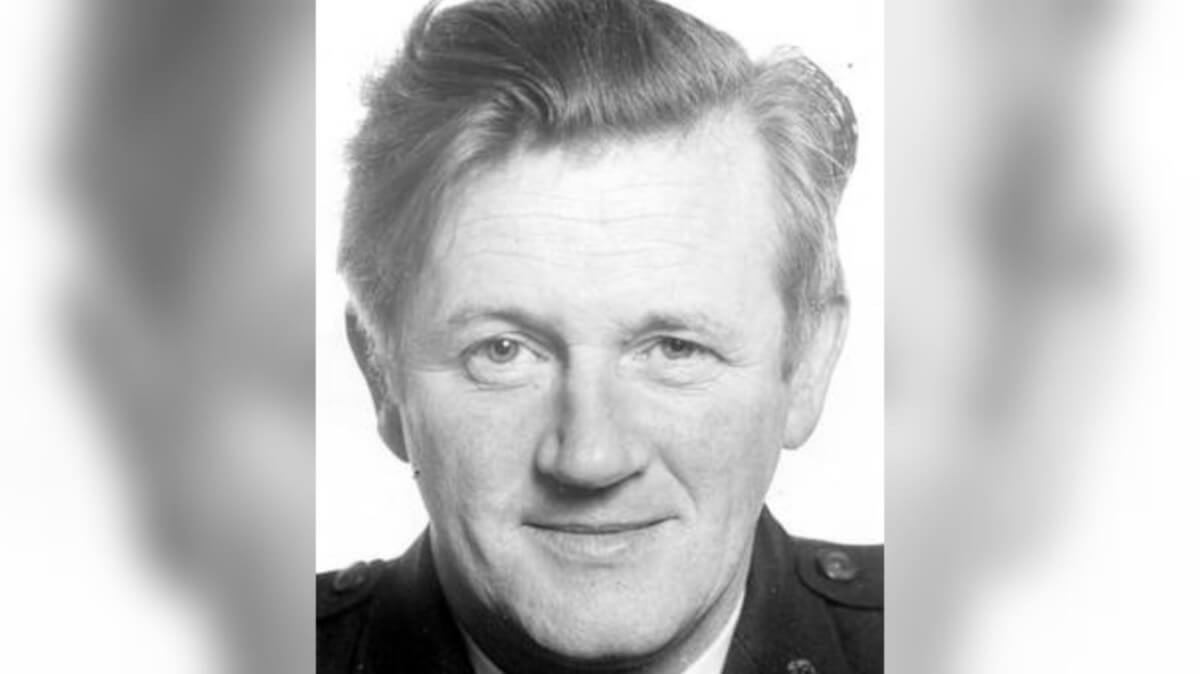
Joe Campbell
An inquest into the murder of a Catholic RUC officer almost 50 years ago is set to continue despite the introduction of the British government’s Legacy Act this week.
Sergeant Joseph Campbell was shot dead as he locked up outside Cushendall RUC station in Co Antrim in February 1977.
His inquest is currently ongoing and will now carry on past Wednesday’s cut off date after a coroner “provisionally determined” that it could continue as a “non-legacy inquest”.
It is understood a hearing has been listed for next month.
A total of 38 Troubles’ inquests linked to 76 deaths have been scrapped after the British government’s new Legacy Act came into force on May 1.
Oversight of legacy cases has now been transferred to the Independent Commission for Reconciliation and Information Recovery (ICRIR).
Many victims and relatives of those who died during the Troubles are strongly opposed to the British government created body, believing it is designed to protect state participants from accountability.
The murder of Sergeant Campbell has previously been linked to the the notorious Glenanne Gang.
Believed to be responsible for around 120 murders, the gang included members of the RUC, UDR and UVF.
It is currently being reviewed by the Operation Kenova team.
Former Attorney General John Larkin ordered the new inquest after fresh evidence was included a Police Ombudsman’s report published in 2014.
That report claimed that former RUC chief constable Kenneth Newman “quite probably” knew about the threat to Mr Campbell’s life but failed to act.
It also claimed that then head of Special Branch, Mick Slevin, was also “aware of concerns, which had been documented, about the threat to his life and failed to act upon them”.
Three years after the killing retired RUC Special Branch officer Charles McCormick was acquitted of Sergeant Campbell’s murder.
He was convicted of charges including possession of explosives and firearms and armed robbery. These were all quashed on appeal.
A second man Anthony O’Doherty, originally from Portglenone in Co Antrim, was convicted of withholding information about the murder but later received a royal prerogative of mercy.
A republican, O’Doherty was recruited by McCormick to become a Special Branch informer.
Several former senior RUC officers refused to co-operate with the Police Ombudsman during his investigation.
At the time Mr Larkin said he was “worried” about the ombudsman’s observation around “systematic destruction and/or loss of critical documentary evidence” by the police.
Mr Campbell’s son, Joe Campbell, said that since his father’s murder “there has been much speculation concerning his death”.
“We simply do not know the actual truth of the matter and the purpose of an inquest is to examine the evidence, establish the facts and to put to rest any rumours or suspicions regarding his death,” he said.
“My father’s inquest was ordered nine years ago.
“It is unfortunate that the state parties have taken so long to begin to perfect its obligations on disclosure to the coroner.”
Solicitor Fearghál Shiels, of Madden and Finucane Solicitors, said: “The Legacy Act requires a coroner to close an inquest if he is satisfied that the death occurs as a result of an act of violence relating to the constitutional status of Northern Ireland or from political or sectarian hostility.”
And he added: “There is a significant body of evidence which suggests that Sergeant Campbell was murdered due to his knowledge of the non-political and non-sectarian criminal activities carried out by a colleague within the RUC and a criminal associate in the glens of Antrim.”
A spokeswoman for the Lady Chief Justice’s office said: “The coroner has provisionally determined that the inquest into the death of Joseph Campbell should progress as a non-legacy inquest.”


You must be logged in to post a comment.